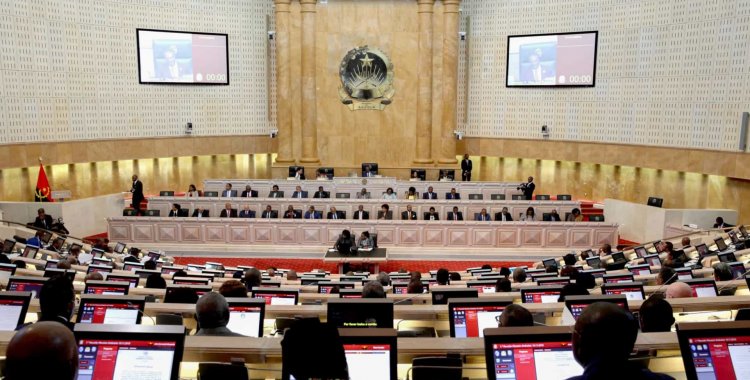The legislative proposal was approved this Thursday by the National Assembly, with 118 votes in favour of the parliamentary group of the majority party, Movimento Popular de Libertação de Angola (MPLA), 54 votes against and four abstentions from opposition parties.
In the presentation of the bill, the Minister of Land Planning and Housing, Paula de Carvalho, said that the use and occupation of land by individuals and the rights constituted in them often clash with the development of strategic projects and interests of the community.
According to the minister, the need to expropriate real estate grows exponentially, taking into account the defragmentation of large urban areas, of the main population centres of the country, where the transversal absence of infrastructures prevails and urban insalubrity prevails.
Paula de Carvalho pointed that the process of urbanization, whether to expand or create urban centers, to renovate, reconvert degraded areas or areas of informal occupation, or even to requalify or regenerate urban areas already consolidated, inevitably implies the expropriation of real estate located in those areas.
The law in force in the legal system on expropriation by public utility is regulated by Law 2030, of 22 June 1948, which was extended to the territory of the current Republic of Angola by Decree 14.507, of 19 August 1953, and its regulation approved by Decree 43.587, of 8 April 1961, which was also extended to Angolan territory by Decree 23.404, of 17 June 1968.
The ruler mentioned that in the scope of the legislative proposal a diagnosis was made, having as study the practices of expropriation and re-housing in Luanda province.
"With this diagnosis it was possible to compare that in almost all cases the principles and procedures of expropriation for public utility were not followed by the organs of public administration, often leading to the violation of legally constituted and protected rights and the unfeasibility or closure of certain projects," said the minister.
The draft law states that "expropriation is only admissible when it is aimed at pursuing an interest in the public interest and against fair and prompt compensation", said Paula de Carvalho.
"Thus, it is proposed as an initial procedure the attempt to negotiate the acquisition of assets, through private law, except in cases of special expropriation, before applying for a declaration of public utility," pointed the minister.
The holder of the Territorial Planning and Housing portfolio also said that the draft law provides that, after the examination of the expropriation request, it is incumbent to declare the public utility of projects to the President of the Republic, whenever the expropriation aims to implement a structuring project or is based on the implementation of projects of national interest, or to the provincial governor, whenever the expropriations have a provincial scope, extending to municipalities where the municipalities have not been implemented.
Where there are municipalities, the draft law attributes this power to its president.
"Only after the declaration of public utility can the expropriating entity notify the owner or possessor about the public interest and the need to make the survey to evaluate the property, through an expert registered in the respective professional order," he said.
According to the minister, the evaluation of the property to be expropriated is of great importance, since it allows the expropriating entity and the possessor to agree on the amount of compensation or compensation, and in the absence of consensus the expropriating entity can resort to litigious expropriation through the judicial system to define the amount of compensation.
However, the legislative proposal stipulates that "the competent organs of the State public administration may only take possession of the property to be expropriated after payment of the equivalent compensation, except in cases of urgent expropriation".
The application of this draft law is extended to possession, provided that it is titled peacefully and in good faith, in other words, "possession is certainly worth less than property, but when titled it must be compensated, the private individual being compensated for the loss of the property to be transferred," the minister said.
"The basis of this option is the need to discourage the illegal occupation of land and the consequent rewarding of its occupants with the right to compensation," said the ruler.
For untitled possession, she classifies the legislative proposal, "that obtained illegally, through the occupation of property in the public domain.
"And it should not be the object of fair and prompt compensation by the State to the occupants, in situations where the State needs the land to carry out any public works, so it is assumed that for these situations the figure of re-housing applies," explained the minister.
This law proposal gives the possibility of reversion to private individuals, recalled the minister, emphasizing that it also works as a way to moralise the performance of the administration, in the effective use of the property expropriated for the purpose of public utility that was present in the respective declaration.
"And, on the other hand, it also functions as a way to enable the expropriated people to recover property that was not applied to the purpose that determined the expropriation, through the restitution of the amounts of compensation awarded to the expropriating entity or the beneficiary of the expropriation," she said.







